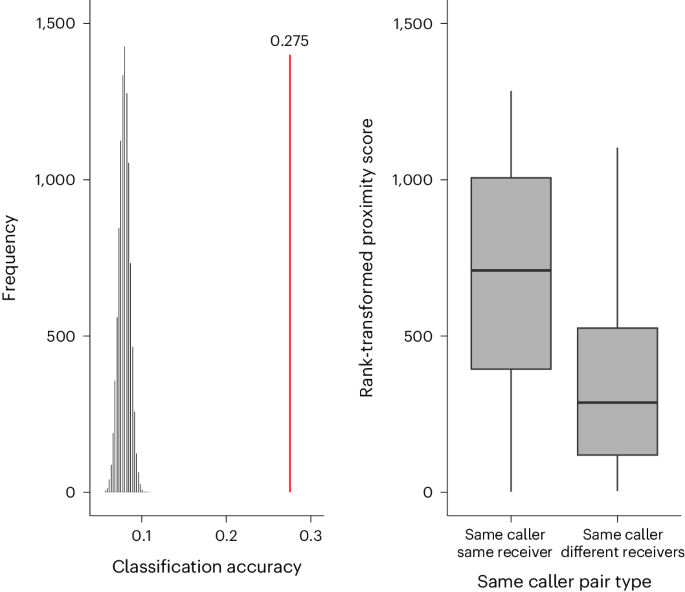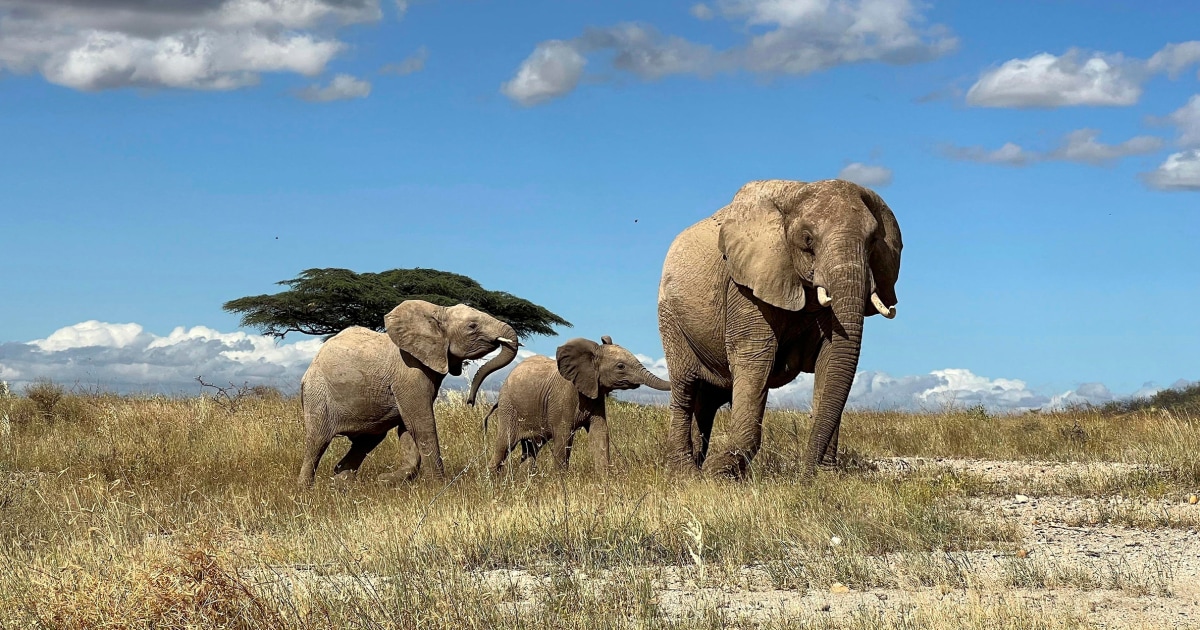Research has uncovered an aspect of African elephants behavior, they appear to use individualized calls to address each other to the way humans use names. This study was published in Nature Ecology and Evolution.

Also Read: Kanlaon Volcano Erupts, Sending 5km Ash Plume into Sky
The study was conducted by an international team of researchers. They used machine learning to analyze calls from two herds of African savanna elephants in Kenya.
Over 469 distinct calls were analyzed from recordings taken between 1986 and 2022. The herds were observed in Samburu National Reserve and Amboseli National Park.
Researchers recorded a wide range of elephant vocalizations including rumbles and low-frequency sounds.
An artificial intelligence algorithm was used to sift through the calls to identify patterns and specific vocalizations. Recordings of these calls were played back to elephants to observe their reactions.
Elephants use unique, non-imitative sounds to address specific individuals. They recognize and respond to calls meant for them.
The ability to call by name is observed primarily in adults, particularly when addressing young elephants. Elephants use names more frequently over long distances and in complex social situations.
Unlike dolphins and parrots, which mimic sounds to name each other, elephants invent unique calls. This suggests a higher level of abstract thought in elephants, comparable to human language.
Elephants produce a variety of sounds from loud trumpets to low-frequency rumbles. The most significant calls in this study were harmonically rich, low-frequency sounds. These rumbles serve various social functions including calling by name.
The study suggests that African elephants use specific, individualized vocalizations to communicate with each other similar to how humans use names.
This form of communication is rare among nonhuman animals and highlights the complexity of elephants.
The research was conducted over several decades in Kenya’s Amboseli National Park and Samburu and Buffalo Springs National Reserves.
Using a machine-learning model, researchers analyzed 469 recorded calls from wild female elephants and their calves. These calls were categorized into three types, contact rumbles, greeting rumbles and caregiver rumbles.
The machine-learning model successfully identified the intended recipient of the calls 27.5% of the time, which is higher than random chance.
This suggests that the calls contain specific acoustic features that convey the identity of the addressee.
Elephants were found to have different call structures when addressing different individuals. Unlike dolphins and parrots, which use imitation to mimic the signature calls of their peers, elephants do not rely on mimicking.
Their calls are more abstract, similar to human names, which indicates a sophisticated level of vocal learning and cognitive processing.
In playback experiments, elephants responded more strongly to calls that were originally directed at them.
This behavior indicates that elephants can recognize and respond to calls specifically addressed to them.
Also Read: Germany Floods: At Least 4 Dead and Thousands Evacuated
The use of individualized calls implies that elephants possess a form of abstract thought. They must learn and associate specific sounds with individual elephants.
While some animals like dolphins and parrots use specific calls to address each other, these usually involve imitation rather than the use of arbitrary sounds as labels.
The elephant’s method of communication is more comparable to human language, where sounds are used as symbols rather than direct imitations.
Elephants have complex social systems, maintaining lifelong bonds with many individuals. Their use of name-like calls likely helps manage these relationships enabling them to maintain connections even when separated by large distances.
Elephant calls convey a wealth of information including the caller’s identity, age, sex, emotional state and behavioral context. This rich acoustic communication enables them to coordinate activities and maintain social bonds across large distances.
Elephants use infrasonic sounds, which are below the human hearing range to communicate over vast distances.
This ability is crucial for coordinating group movements and maintaining social cohesion in the expansive African landscape.
The study suggests that the need to manage complex social relationships may have driven the evolution of name-like calls in elephants.
This parallels theories about the evolution of human language, where the need to address and refer to individuals in a social context likely played a crucial role.
Caregiver rumbles were found to be more accurately identified by the machine-learning model than other types of calls.
This indicates that caregivers may use names more frequently with their calves, potentially to comfort them or to help them learn their own names.
Calls by adult female elephants were more correctly classified than those by juveniles. This suggests that the behavior of using names may take years to develop and might be more prevalent among adults who have more complex social interactions.
Also Read: San Francisco: Wildfire Burns 14,000 Acres, Thousands Evacuated
























